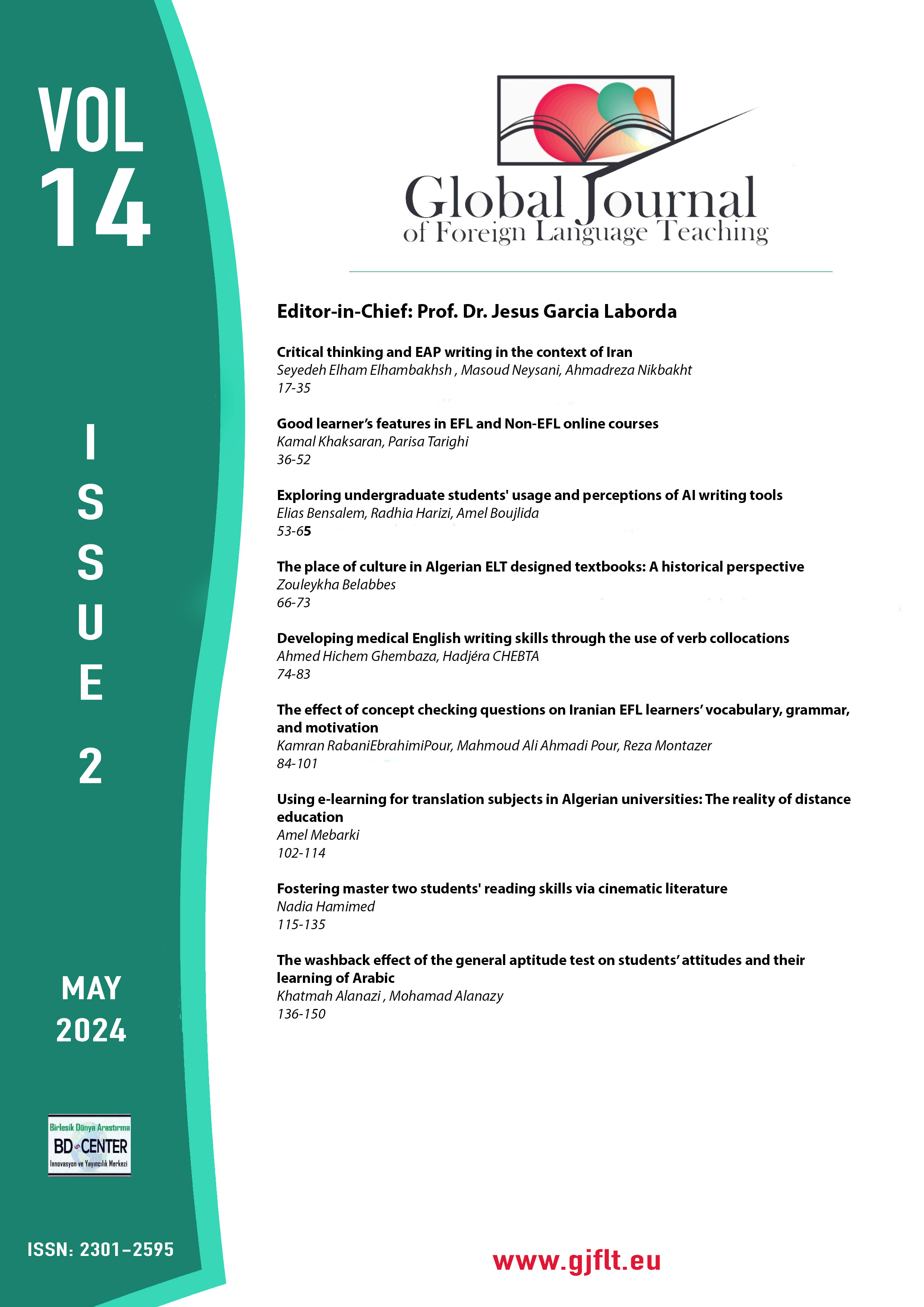The effect of concept checking questions on Iranian EFL learners’ vocabulary, grammar, and motivation
Main Article Content
Abstract
Employing the technique known as Concept Checking Question, teachers of English as a foreign language can identify those individuals who face difficulties with the material and ascertain whether or not supplementary practice is required. Nevertheless, the full extent of CCQ's impact on various language skills and systems remains to be fully explored, particularly in the context of Iran. Consequently, the present study aims to examine the impact of CCQ implementation on the vocabulary, grammar, and motivation of intermediate Iranian EFL learners. To achieve this, 36 intermediate EFL learners were recruited from a private language institute in Kerman, Iran. Employing a quasi-experimental design, the participants were divided into an experimental class of 17 and a control class of 19. Data were collected through the application of the Oxford Placement Test, a lexis test, a grammar test, and a motivation questionnaire. The results of independent samples t-tests suggest that the CCQ class demonstrated significantly better performance in terms of lexis and grammar improvement when compared to the control class. Furthermore, a chi-square test revealed a significant association between CCQ implementation and the motivation of intermediate EFL learners. The results of this study may be beneficial for educators and other stakeholders who wish to incorporate CCQs into language classes as a means of enhancing grammar, lexis, and motivation.
Keywords: Concept checking questions; EFL Learners; grammar; lexis; motivation
Downloads
Article Details

This work is licensed under a Creative Commons Attribution-NonCommercial-NoDerivatives 4.0 International License.
Authors who publish with this journal agree to the following terms:- Authors retain copyright and grant the journal right of first publication with the work simultaneously licensed under a Creative Commons Attribution License that allows others to share the work with an acknowledgement of the work's authorship and initial publication in this journal.
- Authors are able to enter into separate, additional contractual arrangements for the non-exclusive distribution of the journal's published version of the work (e.g., post it to an institutional repository or publish it in a book), with an acknowledgement of its initial publication in this journal.
- Authors are permitted and encouraged to post their work online (e.g., in institutional repositories or on their website) prior to and during the submission process, as it can lead to productive exchanges, as well as earlier and greater citation of published work (SeeThe Effect of Open Access).
